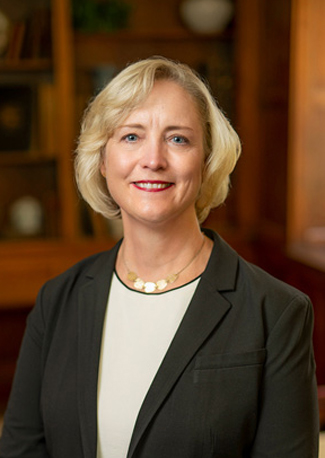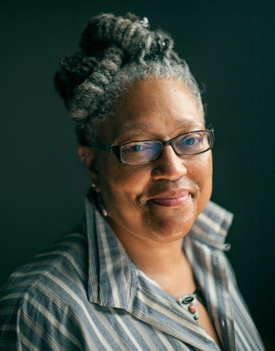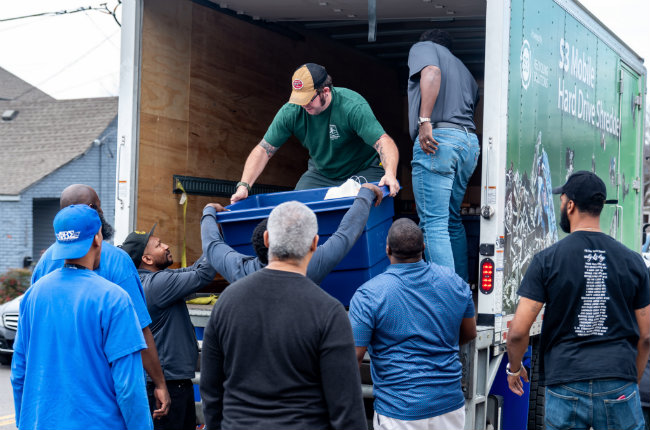A rapid response grant of $150,000 by the Henry Luce Foundation will continue the intensive humanitarian efforts of Vanderbilt Divinity School after tornadoes wreaked havoc across Tennessee in early March, followed by the COVID-19 pandemic.

"I am grateful to the Henry Luce Foundation for this timely and important grant, which will allow the Divinity School to continue their excellence in academic inquiry, collaboration and discovery while also fulfilling our university's mission to impact society for the better," said Interim Chancellor and Provost Susan Wente. "Especially during this moment of economic hardship, our ability to help our broader community has never been more evident or more critical."
The gift will allow the Divinity School to "pair generosity with strategic intervention to help provide resources for folks who were already struggling against the odds and now have been hit hard by both the tornado and the pandemic," said Emilie M. Townes, dean of the Divinity School and director of the Public Theology and Racial Justice Collaborative. She is also the E. Rhodes and Leona B. Carpenter Professor of Womanist Ethics and Society. "This is what partnership looks like."
"We are grateful to Vanderbilt Divinity School for its willingness to partner with the Henry Luce Foundation's Theology Program in a networked initiative that involves rapid response efforts to the COVID-19 pandemic in a number of U.S. cities and regions," said Luce Foundation Program Director Jonathan VanAntwerpen. "Responsive to the ideas and creativity of our grantee partners, and attentive to local needs and capabilities, these efforts are taking multiple forms. But each will involve both direct support for community-based organizations and aligned efforts to give voice to the experiences of vulnerable communities under the pandemic."

Teresa Smallwood, associate director of the Public Theology and Racial Justice Collaborative, has been partnering with local nonprofits in the aftermath of the storms. She was able to gather more than $67,000 in grant funds for relief and recovery, including relocation services, food supplies, temporary housing support and transportation assistance for many recovering from the tornadoes.
However, North Nashville remains devastated and shelter-at-home protocols have exacerbated the situation for thousands of people who were already in temporary and unstable living conditions. The Luce funds, Smallwood says, will go a long way in providing relief to Tennessee's most vulnerable citizens.
"This grant will enable us to change many lives for the better-from the residents of North Nashville who still seek support and relief from the tornado to team members and alumni from the Divinity School," Smallwood said. "As someone who has worked with many Nashville residents as a minister and through disaster relief efforts, I am eager to see the full impact of this generous funding."
The Divinity School will make the funds available to 501(c)(3) partners via an invitation-only grant submission process to support the following:
- individuals experiencing unemployment or underemployment;
- individuals in need of housing and shelter;
- individuals in need of food and utility payment assistance;
- displaced businesses, renters and homeowners; and
- houses of worship or businesses destroyed in the tornado and prohibited from rebuilding in the Nashville area as a result of displacement due to COVID-19.
The Henry Luce Foundation has provided immeasurable support to the Divinity School, including establishing the Public Theology and Racial Justice Collaborative in 2017 through a $1 million grant. The program seeks to bring scholars, students, activists and public servants to the Divinity School to work through the collaborative to eradicate racism and its reciprocal forms of injustice and hatred.
In early 2020, the collaborative received $500,000 from the foundation to support its second phase-to establish mobile institutes across the nation modeled after Summer Institutes held at the Divinity School. These gatherings have featured scholars and activists sharing best practices from a wide variety of racial justice proponents and to equip participants to engage a wide public on systemic issues, such as voter suppression, gerrymandering, privatization of education, resegregation, gentrification, eroding access to viable healthcare, the criminalization of poverty and militarized police brutality.

Joan Brasher contributed to this story.






